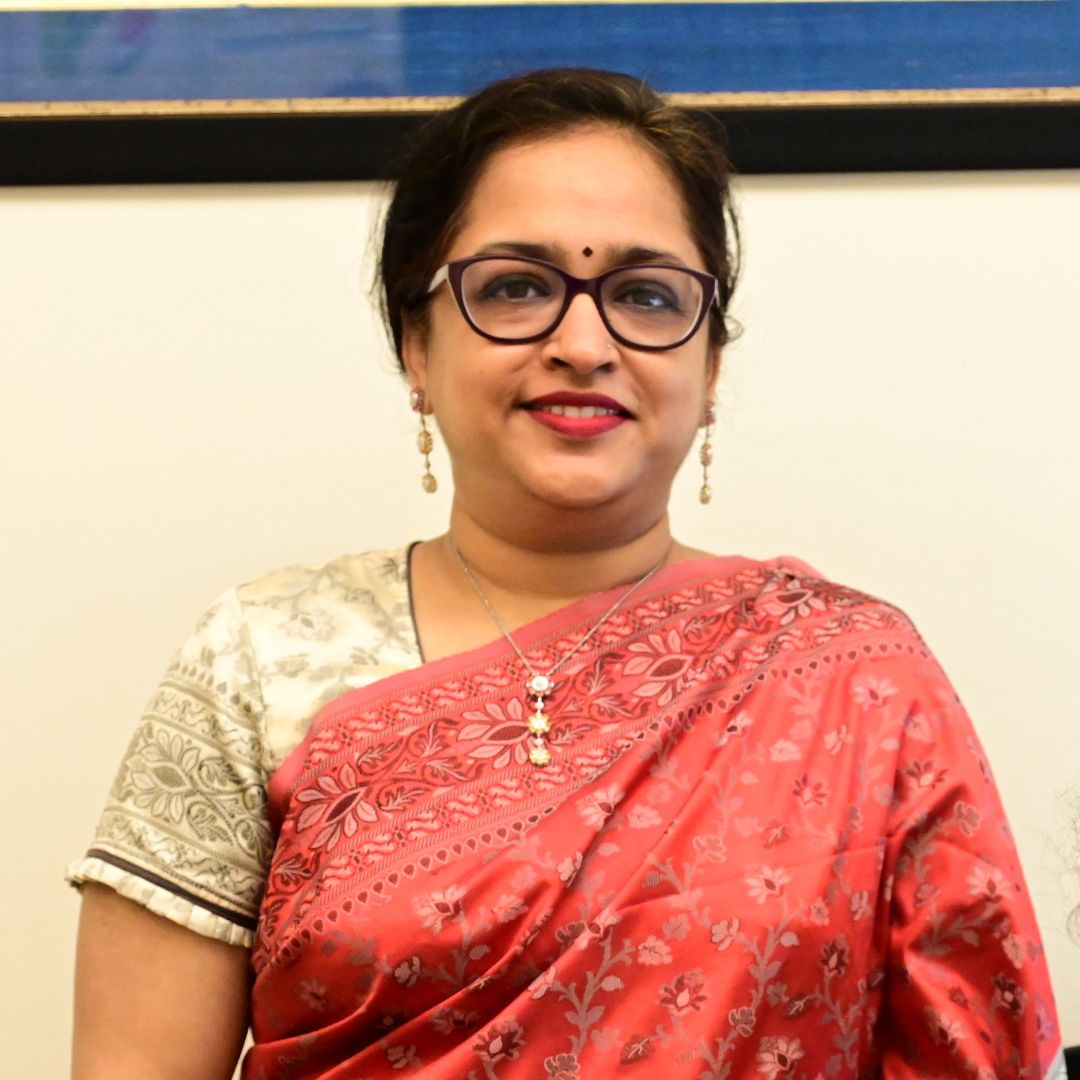In an insightful conversation, Shilpa Gandhi, Vice Principal, Jasudben ML School, Mumbai, shares her vision of modern education that extends far beyond textbooks with Triparna Ray. She reflects on the transformation of schools into holistic development spaces, the promise and hurdles of implementing NEP 2020, and the evolving role of educators in the age of AI and mental health awareness. From sustainable schooling to rethinking assessments, Gandhi provides a thoughtful roadmap for shaping future-ready students.
With the evolving education system in India, how do you see the role of schools transforming beyond just academics to holistic child development?
Today, schools have evolved into environments that nurture holistic child development, and are not mere centers for academic learning; they . The need of the hour is fostering intellectual, emotional, social, and physical growth in students. The focus is shifting towards developing life skills, critical thinking, and emotional intelligence alongside traditional academics. Schools are introducing experiential learning, arts, music, sports, and mindfulness practices to ensure students grow into well-rounded individuals. By emphasizing values such as empathy, teamwork, and resilience, we prepare students to thrive in an ever-changing world. The role of schools has expanded to mentoring students, fostering creativity, and instilling a sense of responsibility toward society.
What are some of the challenges and opportunities schools face in implementing NEP-2020 and multidisciplinary education effectively?
NEP-2020 presents a transformative vision for education, but its implementation comes with challenges. One major challenge is the transition from traditional rote learning to a more flexible, multidisciplinary approach. Teachers need extensive training to adapt to the new pedagogy, and infrastructure must be upgraded to support experiential and skill-based learning. Additionally, assessments need restructuring to align with competency-based learning rather than memorization.
However, NEP-2020 also provides numerous opportunities. It encourages students to explore diverse subjects, fosters creativity, and promotes critical thinking. The integration of vocational education and experiential learning bridges the gap between academics and real-world applications. Schools that effectively implement this policy will be able to nurture students who are adaptable, innovative, and well-prepared for the future.
As AI becomes a part of learning environments, how should schools balance technology integration with traditional learning methods to ensure effective education?
AI and technology are revolutionizing education, offering personalized learning experiences and interactive tools. However, it is crucial to maintain a balance between technology and traditional learning methods. At Jasudben ML School, we integrate AI-driven tools for adaptive learning while ensuring that human interaction remains central to education. The teacher’s role is irreplaceable in fostering creativity, ethical reasoning, and emotional intelligence. Schools must also educate students on responsible technology use and digital well-being. Hybrid models that combine AI-powered learning with hands-on activities, discussions, and collaborative projects can provide an enriching educational experience.
Academic pressure, social media exposure, and competition have significantly impacted students’ mental health. What role should schools play in promoting a healthier mindset among students?
Schools must take an active role in promoting student well-being. At Jasudben ML School, we emphasize the importance of mental health through counseling services, mindfulness sessions, and open conversations about stress management. Encouraging a growth mindset, where failures are seen as learning opportunities, helps reduce pressure. Additionally, promoting digital literacy helps students navigate social media responsibly. Schools should also encourage extracurricular activities that foster self-expression and personal growth. By creating a supportive environment and fostering strong student-teacher relationships, schools can help students build resilience and maintain a healthy balance between academic goals and personal well-being.
How can schools introduce sustainable practices and environmental responsibility in a way that influences young minds meaningfully?
Sustainability should be woven into the school curriculum and daily activities to instill lifelong environmental responsibility in students. At Jasudben ML School, we incorporate eco-friendly initiatives such as waste segregation, tree planting drives, and energy conservation programs. Students are encouraged to participate in sustainability projects and eco-clubs, making them active contributors to environmental solutions. Hands-on activities like gardening, recycling workshops, and awareness campaigns help students understand their impact on the planet. Schools should also integrate sustainability into lessons, demonstrating how subjects like science, geography, and economics intersect with environmental responsibility. By engaging students in meaningful sustainability efforts, we nurture future leaders committed to a greener world.
There is a growing conversation around rethinking assessments beyond traditional exams. In your opinion, what alternative assessment methods should schools adopt to evaluate a student’s overall growth?
Traditional exams primarily assess rote memorization, but education must evolve to recognize diverse talents and skills. Schools should adopt a mix of formative assessments, project-based learning, and real-world applications to evaluate student growth holistically. Portfolio assessments, where students showcase their progress through various assignments and projects, allow for a more comprehensive understanding of their learning journey. Peer assessments and self-reflections help students develop critical evaluation skills. Additionally, oral presentations, group discussions, and experiential learning activities can provide insights into a student’s conceptual understanding and creativity. By diversifying assessment methods, schools can ensure a more inclusive and equitable evaluation system that nurtures each student’s potential beyond test scores.
This article appeared in Brainfeed Magazine online portal on 23rd April, 2025.
